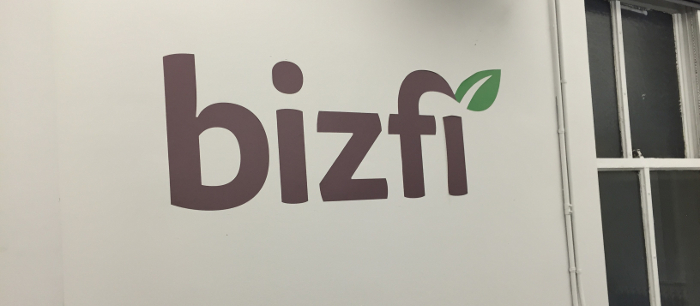Archive for 2017
CAN Capital Resumes Funding
July 6, 2017
CAN Capital is back in business, thanks to a capital infusion by Varadero Capital, an alternative asset manager. Terms of the capital arrangement were not disclosed.
CAN Capital stopped funding late last year and removed several top officials after the company discovered problems in how it had reported borrower delinquencies. The discovery also resulted in CAN Capital selling off assets, letting go more than half its employees and suspending funding new deals, among other things.
Now, however, the company has a new management team and its processes have been revamped and staff retrained in anticipation of a relaunch, according to Parris Sanz, who was named chief executive in February. He was the company’s chief legal officer before taking over the helm after then-CEO Dan DeMeo was put on leave of absence.
As of today (7/6), CAN Capital has resumed funding to existing customers who are eligible for renewal. Within a month, the company plans to resume providing loans and merchant cash advance to new customers. It will have two products available in all 50 states—term loans and merchant cash advances with funding amounts from $2,500 to $150,000.
To be sure, getting back into the market after so many months will be a challenge. “I think we’re absolutely going to have to work hard, no doubt about it. In many ways, given our tenure and our experience, the restart may be easier for a company like us versus others. Based on the dynamics in the market today, I see a real opportunity and I’m excited about that,” Sanz said in an interview with DeBanked.
 Since its founding in 1998, CAN Capital has issued more than $6.5 billion in loans and merchant cash advances. It’s one of the oldest alternative funding companies in existence today, and, accordingly, it shook the industry’s confidence when the company’s troubles became public late last year.
Since its founding in 1998, CAN Capital has issued more than $6.5 billion in loans and merchant cash advances. It’s one of the oldest alternative funding companies in existence today, and, accordingly, it shook the industry’s confidence when the company’s troubles became public late last year.
The new management team includes Sanz, along with Ritesh Gupta, the chief operating officer, who joined CAN Capital in 2015 and was previously the firm’s chief customer operations officer. The management team also includes Tim Wieher as chief compliance officer and general counsel; he initially joined the company in 2015 as CAN Capital’s senior compliance counsel. Ray De Palma has been named chief financial officer; he came to CAN Capital in 2016 and was previously the corporate controller. The management team does not include representatives from Varadero.
Varadero is a New York-based value-driven alternative asset manager founded in 2009 that manages approximately $1.3 billion in capital. In the past five years, Varadero has allocated more than $1 billion in capital toward specialty finance platforms in various sectors including consumer and small business lending, auto loans and commercial real estate. In 2015, for instance, Varadero participated in separate ventures with both Lending Club and LiftForward.
Varadero began working with CAN Capital as part of its efforts to pay down syndicates. Varadero bought certain assets from CAN Capital last year and provided enough funding to allow CAN Capital to recapitalize. “The recapitalization enabled us to pay off the remaining amounts owed to our previous lending syndicate and provided us with access to additional capital to resume funding operations,” Sanz says. He declined to be more specific.
“We were impressed with the overall value proposition of CAN’s offerings as evidenced by the strength of its long standing relationships, the company’s core team, sound underwriting practices, technology and the strong performance of their credit extension throughout the cycle,” said Fernando Guerrero, managing partner and chief investment officer of Varadero Capital, in a prepared statement. “We’re confident the company’s focused funding practices will allow it to serve small business customers for many years to come.”
Guerrero was not immediately available for additional comment.
DLA Piper served as legal counsel for, and Jefferies was the financial advisor to, CAN Capital, while Mayer Brown was legal counsel to Varadero Capital, L.P.
Since its troubles last year, CAN Capital had been working with restructuring firm Realization Services Inc. for assistance negotiating with creditors. It also worked with investment bank Jefferies Group LLC for advice on strategic alternatives.
Sanz declined to discuss other options CAN Capital considered, noting that the Varadero deal provides the firm the opportunity it needs to jump back into the market—this time with “tip top” operations in place.
He declined to say how many employees the firm still has, other than to say it is now “appropriately staffed.” In addition to getting rid of the prior management team, CAN Capital reduced staffing in numerous parts of its business. That includes nearly 200 positions at its office in Kennesaw, Ga, according to published reports.
The company will still be called CAN Capital. “We feel that that brand has a recognition in the market, in particular with our sales partners,” Sanz says.
What Happened to Bizfi?
July 1, 2017
Update 9/22: Select assets of Bizfi including the brand and marketplace were acquired by rival World Business Lenders
Update 8/30: Credibly was selected to service Bizfi’s $250 million portfolio
This past week, Bizfi gave their remaining employees a 90-day warning notice, according to sources familiar with the matter. It was the latest wave of layoffs to hit the company over the last few months. At its peak, Bizfi, which provided capital to small businesses, employed more than 200 people. Some of those riding out their potentially last 90 days are anxiously awaiting the outcome of nonpublic negotiations to salvage parts of the company’s legacy, if it can be done at all.
It’s a bittersweet moment, according to newly former employees I spoke with, some of whom are so young they vaguely recall Bizfi’s past as both Merchant Cash and Capital (MCC) and Next Level Funding (NLF). They characterized their experience as having worked in fintech.
MCC was founded in 2005 as a buyer of future credit card sales, way before the rise of modern fintech. They later spawned affiliate company NLF, which was eventually consolidated into the newly minted Bizfi brand in 2015. In 2016, they were one of the top three largest originators of merchant cash advances. Today, they are no longer funding new business.
Overall, the company grew too fast and missed the window of opportunity to sell, observers maintain. In a CNBC interview in 2015, a Bizfi representative said that they believed securing a major equity investment would allow them to go public by 2017. Such an investment never came. And with the market cooling last year, institutional interest in the space waned and several of the industry’s better-known players were forced into a precarious position.
Bizfi held on, until recently.
I myself was the third employee of MCC, or fourth depending on who actually walked through the door first on my first day that I shared with another new hire back in 2006 (who by the way was Jared Feldman, the eventual co-founder and CEO of Fora Financial, which sold for millions to Palladium Equity Partners LLC). I was at MCC until 2008 and then worked at NLF until 2010. That means I had been gone for five years before the companies ever merged to become Bizfi and seven years before the current dilemma. Therefore I’m not able to personally comment on what exactly went wrong because the company was nowhere near the same as when I left it.
I will report new developments as they become public.
Yellowstone Capital Funded $47 Million in June
June 30, 2017Yellowstone Capital funded $47 million to small businesses in June, according to an announcement the company made on social media. $40 million of that was funded in-house, the post said.
Yellowstone Capital was ranked by deBanked as one of the largest small business funders of 2016. The company could see their position rise this year since two companies ranked above them are no longer funding.
Easy as Pie? Square Reaches For a Slice of the Consumer Lending Market
June 30, 2017Tod Wilson, founder of Mr. Tod’s Pie Factory in Englewood, N.J., is a Square Capital chief evangelist. Mr. Tod not only uses Square instead of what he describes as a “clunky cash register” but he also gained access to capital from Square via a small business loan that allowed him to expand his pie company.
Now Mr. Tod has the two criteria that qualify him as a candidate for Square Capital’s latest product, Square Installments, which is purchase financing offered to consumers of small businesses on the Square Invoices platform. First, he is one of about 225,000 businesses that use Square Invoice products nationwide; and second his business is based in New Jersey, which is one of half a dozen states that are participating in Square Capital’s pilot program for purchase financing.
“We do invoice via Square, and this sounds like another great product they’ve developed to help entrepreneurs run their business,” Mr. Tod told deBanked, adding that “I don’t believe our invoice transaction amount would make us a great candidate to comment – at least not until we begin selling them in gold pie tins!”
Square is extending purchase financing to consumers for invoices between $250 and $10,000.
Speed, Flexibility & Transparency
Square Capital has been serving the small business owner for the past three years, and so it’s only natural to now target consumers. Meanwhile Square Installments has a striking resemblance to the core features of Square’s small business lending, mainly speed, flexibility and transparency.
For instance, Square Installments is integrated directly into Square Invoices. Sellers send an invoice to customers. Eligible invoices include the option for customers to pay either with a credit card or to pay over time with Square Installments. The loan amount matches the purchase price on the invoice.
A square spokesman said Square Invoices is for merchants ranging from retail to professional services.
“The use case we see from businesses is diverse. We imagine larger ticket purchases, like furniture, appliances or something along the lines of professional services, such as home improvement projects or repairs, installing a fence or solar panels on a house. Imagine going to the veterinarian and having unexpected costs,” he said, adding that the list goes on.
 Customers can then choose to repay the loan over three, six or 12 month installments. All three offers have an attached APR of 9.99 percent.
Customers can then choose to repay the loan over three, six or 12 month installments. All three offers have an attached APR of 9.99 percent.
“With the offers customer see the rate and exactly what the monthly payment would be at that rate over the course of the loan. It’s a really simple transaction and upfront in terms of what the total costs would be with those monthly installments,” said a Square spokesperson.
Square uses their own models to determine credit eligibility based on a host of data inputs and some external credit factors. “We take a holistic view of customers’ credit worthiness to decide whether or not they are eligible for the loan,” the spokesperson said. “Many of those applications will be approved instantly.”
Once the customer is approved the small business is paid instantly, shifting the risk of the unpaid balance over to Square Capital.
“We’re really in the early stages at this point. We’re just starting the pilot. There are no default projections,” the spokesperson said.
In addition to New Jersey, the Square Installments pilot is actively being rolled out across California, Colorado, Florida, New York and Virginia.
All Companies Can Now Submit Draft IPO Registrations Confidentially
June 29, 2017 There’s a reason the public never got to view BFS Capital’s September 2015 IPO registration documents. Thanks to the JOBS Act, “an emerging growth company may confidentially submit to the Commission a draft registration statement for confidential, non-public review by the Commission staff prior to public filing.” They can then choose to abandon the offering altogether without having to suffer the fate of their financial statements being made public, which is what BFS Capital did. But if they ultimately had chosen to move forward, their documents would’ve been shared in the public domain.
There’s a reason the public never got to view BFS Capital’s September 2015 IPO registration documents. Thanks to the JOBS Act, “an emerging growth company may confidentially submit to the Commission a draft registration statement for confidential, non-public review by the Commission staff prior to public filing.” They can then choose to abandon the offering altogether without having to suffer the fate of their financial statements being made public, which is what BFS Capital did. But if they ultimately had chosen to move forward, their documents would’ve been shared in the public domain.
A new decision handed down by the SEC is now expanding that privilege beyond “emerging growth companies” to all companies. That means that any company can submit draft documents confidentially. It will take effect on July 10th.
“This is an important step in our efforts to foster capital formation, provide investment opportunities, and protect investors,” said Director of the Division of Corporation Finance, Bill Hinman. “This process makes it easier for more companies to enter and participate in our public company disclosure-based system.”
The only reason BFS Capital’s confidential filing is known, is because the company broadcasted that they had filed accordingly in a press release.
“By expanding a popular JOBS Act benefit to all companies, we hope that the next American success story will look to our public markets when they need access to affordable capital,” said Chairman Jay Clayton. “We are striving for efficiency in our processes to encourage more companies to consider going public, which can result in more choices for investors, job creation, and a stronger U.S. economy.”
It is possible that other companies in the industry have filed draft registration statements, got discouraging feedback from the SEC and then decided to withdraw without any of their competitors being the wiser.
Pave Stops Lending
June 29, 2017Pave, an online lender that came on the scene several years ago by marketing fair funding to millennials, is no longer lending, according to their website.

American Banker reported that the company stopped making new loans earlier this month and was exploring strategic options.
Like many several online lenders of their time, Pave touted innovative underwriting beyond just FICO scores. “We start by reviewing the individual’s credit score and history, then incorporate additional factors like use of funds, work history, current employment, education and future earning potential,” Their website says. “This gives us plenty of opportunities to recognize how financially responsible a person can be, and it’s how we can give the lowest possible rate.”
To be eligible, applicants had to either have an income, a job offer, or plans to attend a school course.
In 2015, Pave announced that a consortium of lenders led by New York-based Seer Capital had agreed to invest up to $300 million in their loans.
SoFi Bank Puts ILC Charter in Spotlight
June 28, 2017
Online lender SoFi’s decision to apply for a bank charter has snagged the attention of alternative lenders, big and small banks and regulators alike. Market participants appear split between cheering the move and drawing a line in the sand. One thing they agree on is that the signs were there all along.
Christopher Cole, executive vice president and senior regulatory counsel at the Independent Community Bankers of America (ICBA) said it was only a matter of time.
“We were expecting the application from a fintech company to come eventually and it came pretty rapidly,” Cole told deBanked. “What was surprising to me was that they took the ILC route as opposed to the OCC special purpose national bank charter.”
As a Utah-chartered industrial bank SoFi would be subject to the regulation of the FDIC. There have not been any ILC applications for deposit insurance in years in part due to a temporary moratorium that Dodd Frank placed on the ILC loophole following the financial crisis, a roadblock that has since been removed.
Richard Hunt, president and CEO of the Consumer Bankers Association (CBA), said that SoFi’s application was certainly not a shock.
“The whole world is evolving, fintech is evolving. This was inevitable one way or another,” Hunt told deBanked, adding that there will probably be more applications coming down the pike, which he welcomes. “We’re glad more people are getting into banking. SoFi at one time railed against banks and now it wants to get into banking. Welcome to the world of banks and overregulation.”
The CBA is comprised of the country’s largest financial institutions as well as regional banks.
“This is the first true test of the FDIC in a new fintech world,” said Hunt, adding that it’s the duty of the FDIC to ensure that SoFi Bank is well capitalized. “That is part of the application process.”
The ICBA is comprised of approximately 6,000 small banks across $5 trillion in assets.
“This would actually create a risk to the deposit insurance system. An ILC would have deposit insurance from the FDIC. If SoFi Bank fails because parent SoFi can’t maintain it, the rest of the banking system must pay for it. They’re putting the banking industry at risk here,” said Cole.
And while the rise of fintech startups has created more competition for banks, neither trade organization has a problem with this.
“We’re not trying to keep fintech from competing, that’s not the case,” said Cole.
Meanwhile Hunt told of his trip to Silicon Valley in which he visited SoFi as well as many other fintech startups.
“I’ve always been a big fan of SoFi, especially after visiting. I’m head over heels they chose banking as their industry. We’re gloating that they want to join the banking industry. This is good for consumers, to have choices. We are not going to be afraid of SoFi joining the banking world. We welcome them to the banking world,” said Hunt, adding that banks are ready to compete as long as it’s fair.
Fair is precisely what the ICBA is seeking.

Level Playing Field
There are about 30 existing ILCs in existence now and thousands of insured banks. And SoFi’s use of the ILC charter is the ICBA’s main objection.
“It’s the fact that they’re using this loophole so that SoFi, the parent company of SoFi Bank the subsidiary, will not be subject to the same kind of restrictions that the owner of a commercial bank would. And therefore, you don’t have a level playing field,” said Cole.
The ICBA is also concerned that a successful SoFi ILC charter would set a precedent for other fintech firms.
“Who’s next? I could see Amazon trying to do this and waiting for SoFi to do it first. Who knows? I could see maybe Google and PayPal pursuing this. I could see some big commercial companies exploiting this loophole, and that is why we think it should be closed,” said Cole.
Meanwhile CBA’s Hunt sees things somewhat differently. He said SoFi’s application represents an opportunity for bank regulators to review the ILC in a new world environment and possibly make changes.
“No one envisioned when they wrote the ILC charter that we would have fintech companies that finance mortgages and student loans from private equity capital and not deposits. It’s a new world. Like with all rules and regulations, federal regulators should periodically review longstanding policy,” Hunt said.
Either way the influence of the banking sector should not be overlooked.
“We have been fighting the ILC charter for over a decade. When Walmart tried to apply for an ILC charter in 2006 we objected at that point. And that resistance was part of the reason why they never got a charter,” said Cole.
 SoFi Bank
SoFi Bank
The ICBA is preparing commentary for the FDIC, which is due by July 18. “Our comments will be focused mostly on the use of the ILC charter,” said Cole.
Once the comments are in, the ball is in the FDIC’s court. “We’re anticipating that a decision will be made in the next two to three months. We should know by the end of this year whether or not SoFi Bank gets its charter and deposit insurance,” said Cole.
If SoFi does become a bank, Hunt says he’s pleased that the fintech company has expanded its lending beyond only the elite universities though he’s still not sure they’ve gone far enough. “If they are granted the ILC charter, every student should have fair access to SoFi’s products just as they do with every other bank in this country,” said Hunt.
SoFi declined to comment for this story.
Puerto Rico Bankers Association Calls Section 1071 Absurd and Unreasonable
June 28, 2017Section 1071, the law that grants the CFPB authority to collect loan application data on minority and women-owned businesses, is under fire, again. This time it’s the Puerto Rico Bankers Association in response to the CFPB’s RFI on the matter. In a letter, the PRBA points out the sheer irony of conducting costly disparate impact studies on minorities in minority-only communities.
An excerpt from their statement:
According to the 2010 US Census Bureau, 99% of the population of Puerto Rico is Hispanic.
[…]
The direct and evident effect of Section 704B of ECOA for the financial institutions in Puerto Rico will inevitably be the collection, recordkeeping and reporting of virtually all commercial loan applications received within the Puerto Rico marketplace, since most of such applicants would be regarded as “Minority Owned Business”, in accordance with Section 704B.
The PRBA believes that this absurd and unreasonable result must not have been intended by Congress when it enacted Section 1071 of the Dodd-Frank Act. The data so collected, maintained and reported will not serve the purposes for with Section 1071 was enacted since, for the reasons set forth above, it will be completely inaccurate and unreliable. The potential complexity and cost of compliance with the minority-owned businesses data collection and reporting requirements of Section 704(B), will impose on our banks an unintended and unreasonable burden.
Other responses to the CFPB’s RFI have so far called Section 1071, “literally impossible to comply with” and a duplicated effort.





























